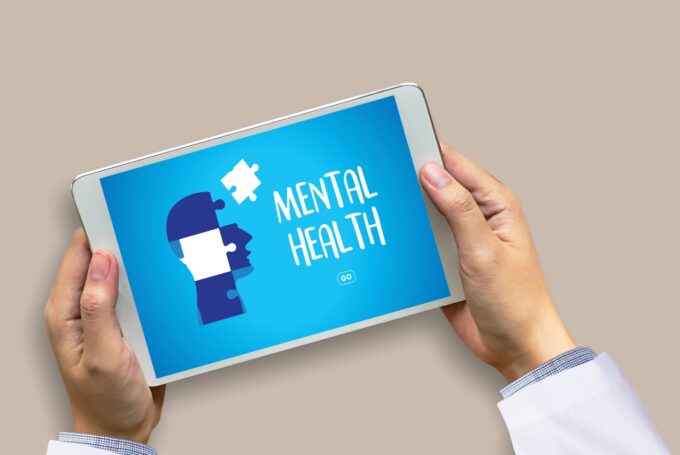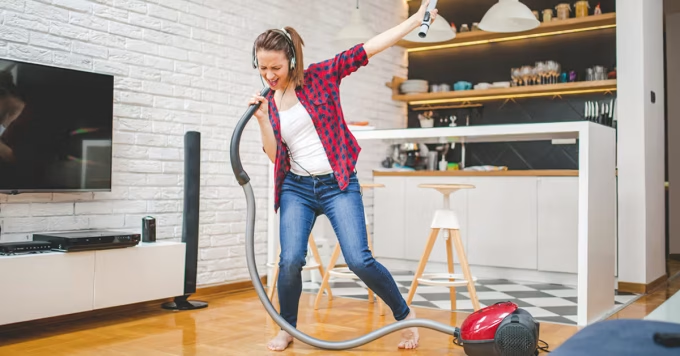When people think about investing in their mental health, their minds often jump to big-ticket items—therapy, retreats, gym memberships, or even moving across the country to “start fresh.” And while those can be helpful, there’s another, more practical path. You don’t need to shake up your entire life to take better care of your mind. In fact, the smallest changes are often the ones that stick—and they’re usually hiding in plain sight. Let’s explore how to start showing up for your mental health, one manageable decision at a time.
Technology to Actually Support Your Mental Health

While it’s easy to blame screens for anxiety or information overload, the truth is, your tech can work with you instead of against you. It’s not just about avoiding social media doom scrolling—it’s about using technology for better mental health in a deliberate way.
There are apps that help guide you through breathing exercises, track your mood, or help you journal your thoughts. Reminders on your phone can gently prompt you to drink water, get outside, or stretch. Noise-canceling headphones can create a peaceful environment when the world feels too loud. Even your smartwatch can nudge you to stand or take a breath when you need it most.
The key here is thoughtful use. Let technology enhance your day instead of running it. Turn off notifications that don’t serve you, schedule screen-free blocks of time, and use your devices to reinforce healthy habits, not distract from them. When used with intention, technology doesn’t have to be the problem—it can actually be part of the solution.
The Value of Spending Money on Home Upgrades for Mental Health

If there’s one thing people overlook when thinking about self-care, it’s their home environment. The place where you wake up, unwind, and spend most of your time can either work for you—or drain you. That’s why even small investments in comfort and ease can lead to a bigger payoff in how you feel each day.
Think about the daily moments that set the tone. Something as simple as making coffee can be transformed with better tools. Investing in thoughtful appliances like espresso machines, coffee grinders, and fresh roasted beans isn’t just about better caffeine—it’s about creating a ritual that feels rewarding. When your home includes things that make your routine smoother or more enjoyable, your day begins on a steadier, more intentional note.
Comfort isn’t frivolous. It’s strategic. A chair that supports your back, lighting that lifts your mood, or kitchen tools that simplify dinner can reduce stress in ways that compound over time. These upgrades don’t have to be major. You’re not redesigning your life—you’re tuning it to make things a little easier. And that kind of ease is good for your mental health.
Writing Lists That Help You Stay Mentally Clear

Whether it’s a grocery list, a to-do list, or a running brain dump of what’s been stressing you out, writing things down gives your mind a break from holding it all. We tend to underestimate how much mental energy is spent simply remembering. By transferring the clutter in your head to paper or a note on your phone, you make space for more important thoughts—or at least give yourself permission to rest.
Lists can also give structure to an overwhelming day. They create order when everything feels chaotic and help you prioritize what really matters versus what just feels urgent. Even a short, messy list can act like a reset button, reminding you that you’re not as behind as you think—you just need to see it all laid out.
This isn’t about productivity for productivity’s sake. It’s about getting the swirling thoughts out of your brain so you can breathe a little easier. That, in itself, is a powerful form of mental care.
Managing Money Helps Your Mental Health

While budgeting might not feel relaxing, having a plan for your finances can be one of the most calming things you can do. Financial stress can cause anxiety in many people. When bills pile up or unexpected expenses pop up, it’s easy to feel like things are spiraling. But when you have a system—even a simple one—it shifts the balance of control back to you.
Tracking what you earn and spend doesn’t mean cutting out everything fun. It means understanding where your money goes, so you can make better decisions and even avoid surprises that create panic. Whether you’re setting savings goals or just making sure you’re not overdrafting, small steps toward financial clarity can have a huge ripple effect on your mental state.
Even checking in on your accounts once a week can bring a sense of order. That knowledge is powerful. It means you’re not ignoring the problem. You’re actively creating a sense of security. And peace of mind, especially around money, is a gift you give your future self.
Making Time for Yourself Actually Works
The tricky part is believing you deserve that time, even when everything else feels more urgent. Between work, family, errands, and endless group chats, it’s easy to lose the parts of your day that belong solely to you. But carving out even ten minutes to read, stretch, or just sit in silence can reset your whole system.
Think of it like charging your phone. You wouldn’t let your battery drop to zero and still expect it to function. Your mental health needs that same recharge, and it doesn’t have to involve a long vacation or an elaborate routine. Just a short walk, a podcast you enjoy, or saying “no” to one more task in favor of doing nothing for a moment.
Cleaning Your Space to Clear Your Mind

You don’t need to do a full weekend overhaul to get the benefits, either. Even a quick sweep of your kitchen counters or straightening your nightstand can bring a mental lift. Clutter has a way of making your brain feel busier than it is. When your space is disorganized, your thoughts tend to follow suit.
This doesn’t mean you need a spotless home. But it does mean that taking ten minutes to make your environment feel less chaotic can help you feel more grounded. Sometimes the smallest act—like making your bed—can serve as a visual signal that the day is underway, and you’re in control of at least one thing.









